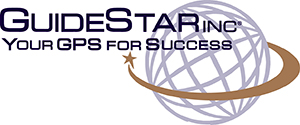River of Character
A River of Character runs through every organization, and the quality of the river directly affects organizational performance. Is your company’s river clean, or is it polluted?
Internal politics, micro-management, greed, arrogance, and self-interests create toxic atmospheres and pollute organizational cultural values. The disconnect between individual and organizational cultural values stifles innovation and urges employees to escape, taking with them their knowledge, skills, and abilities.
Research supports the widespread existence of this disconnect. For example, a Wirthlin Worldwide research study tells us that over two-thirds of Americans believe that no, very few, or only some corporations operate in a fair and honest manner, and according to Neilson, Pasternack, & Mendes (2004), over 68 percent of businesses—including small- to mid-size enterprises—have polluted, dysfunctional cultures.
In contrast, when values such as trust, caring, respect, and responsibility freely permeate the river, relationships flourish setting the foundation for an entangled culture. Leaders of entangled organizations nurture and understand the role of this culture where discretionary thinking and collaboration speed the pace of innovations that drive sustained growth and profitability.
The visibility of strength of the River of Character within entangled organizations attests to the power of character in driving organizational success.
The Power of Character
The seven attributes of the River of Character (Benedetto, 2009) form the foundation for the leadership practices of Character-Based Capitalism that create entangled organizations:
- Clear core values
- Visionary servant leadership
- Well defined organizational purpose
- Excellence centric business model
- Hiring for character
- Commitment to service excellence
- Commitment to lifelong learning
Values play a central role for organizational success because they determine the people who are hired, the customers the company serves, and the suppliers upon whom the company depends. Values are the foundation for character. Leaders of entangled organizations use a values-based approach that creates a positive culture where employees achieve exceptional results (Grojean, Resick, Dickson, & Smith, 2004). This culture depends on critical core values such as trust and caring, where people feel safe to express their ideas, confront the brutal facts while respecting others’ views, and build relationships for collaboration that leads to better solutions. All of this leads us to teach the importance of the power of character in the workplace when working toward an entanglement.

